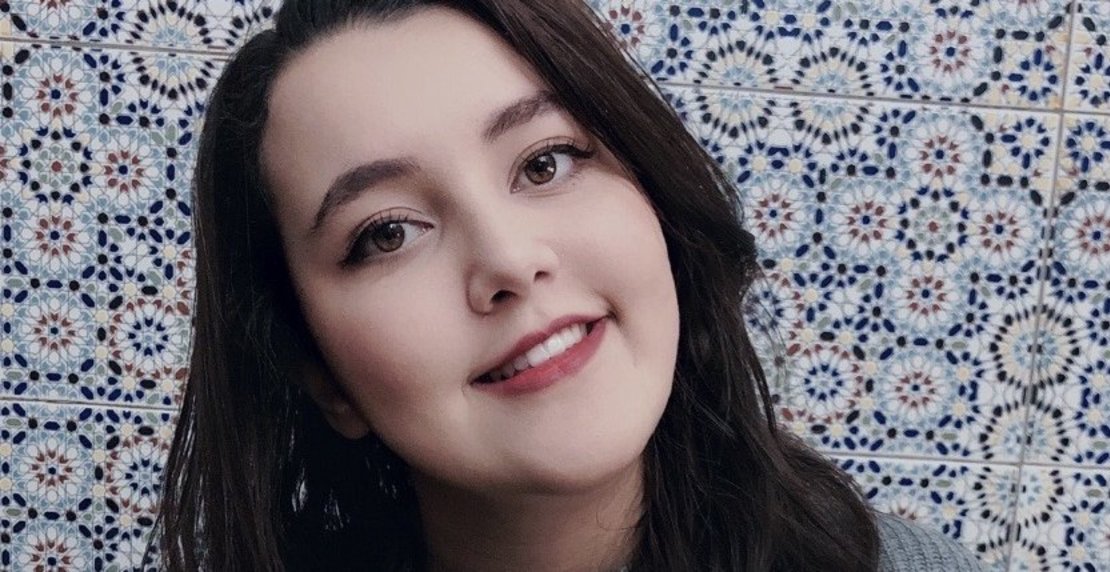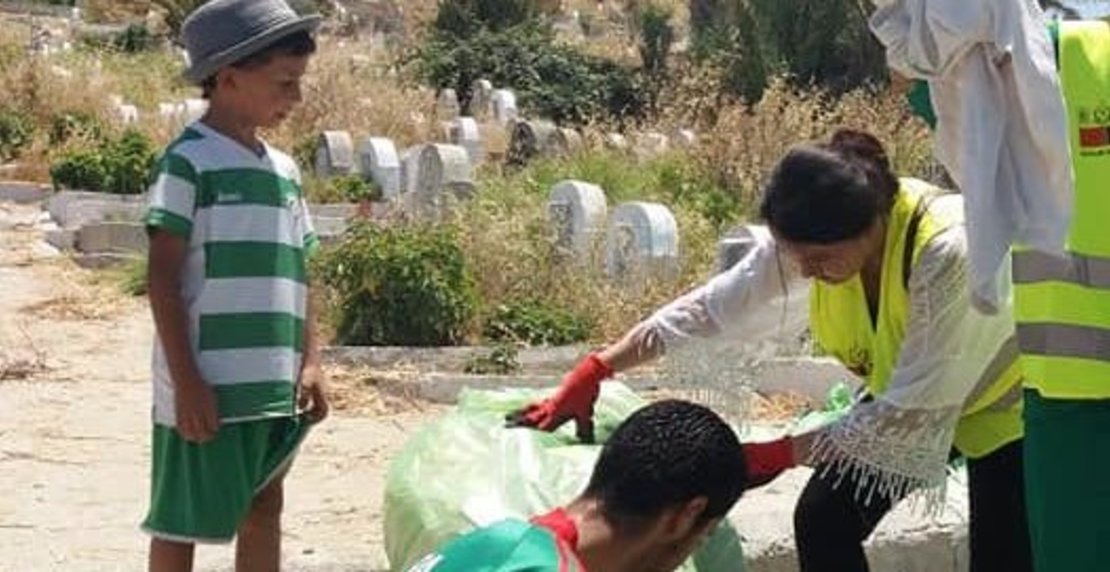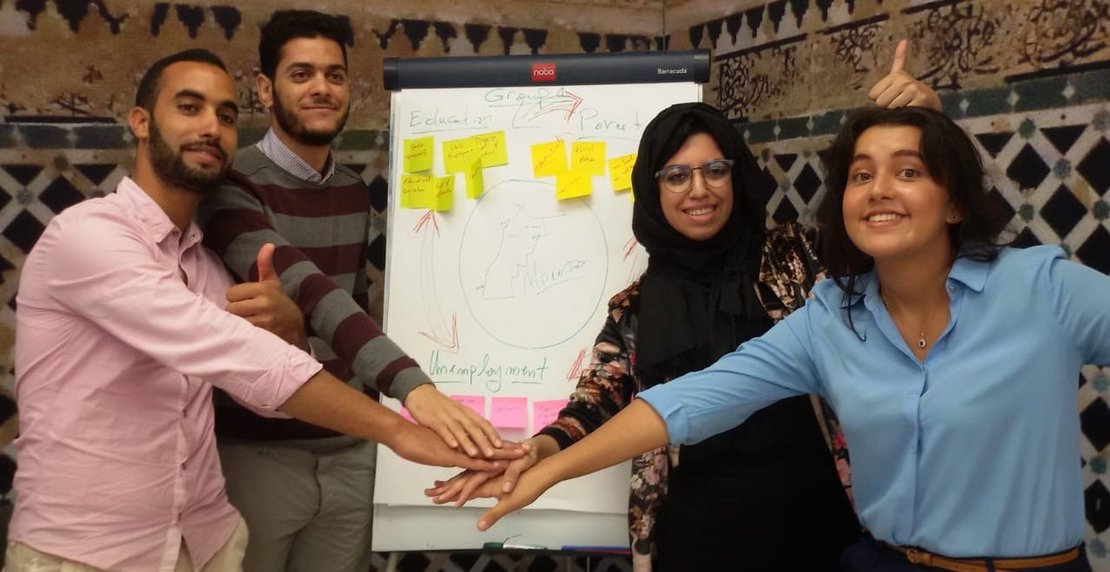
Ikram Ben Talha from Morocco
Text: Jannes Herman Mostert (EFF trainer)
"Greetings, My name is Ikram Ben Talha and I am a 22 years old Moroccan. I am pursuing my second year of Masters in English Literature and the History of Ideas. I work as the vice president of a local organization (MADS) that focuses on the development of a clean and healthy environment. I am also a public speaker, debate team leader, and Erasmus facilitator. I am very pleased to have taken part in two training cycles led by the EFF in Rabat. My first training was in 2018 entitled “School of Democracy: Engaging With Politics’’; and my second was in 2019 entitled ‘’An In Depth Course on The Principles of Democracy and Playing the Game of Politics’’."
What does democracy mean to you?
"Democracy for me is a way of governance that echoes the ideal of justice and equity. It is a system that strives to fulfil the wise saying: ‘’all for one and one for all’’. Living in democracy means acknowledging the rights and duties of individuals by considering the conditions of both citizens and country."
What developments do you see that are shaping democracy, in a positive or negative way, in your country?
"Morocco seems to be gradually progressing towards the road of democracy. The right to information which only lately became possible is an example of how citizens are getting more access to administrative governance. Indeed, there are several challenges that the country still needs to overcome such as the rates of illiteracy and school drop-outs. Nevertheless, the country has been largely advocating for youth political engagement. ‘’Parallel Youth Government’’, for instance, is one of the fascinating programs where youth perform ‘’duties’’ (projects) that parallel the real government."
What do you like about politics and what motivates you to be active in politics?
"I am very interested in the politics of civic engagement. People often think that politics is manipulative (which it partly is), but it should definitely be considered as a tool that can improve the quality of various civic engagement projects. For the near future, I am considering the possibility of a virtual project that offers active Moroccans mentorship on how to approach stakeholders and collaborate with the government to spread the impact. What I truly love about politics is that it is future-oriented. Politics is like a chess game; it is always about planning your next move."

Of which political achievement are you most proud?
"I work on cleaning cemeteries and one of the problems we used to face is that the official cleaning company does not take the garbage away after we clean it. I had a meeting with the stakeholder in our province and she was very pleased to not only ensure that the garbage would be taken away, but also connected us with volunteers who are professional sanitation workers." (click here to see Ikram in action)
What kind of support would you, or other young people active in your country, need more?
"Young people in my country are afraid to voice themselves because they do not know enough about politics and, by consequence, they do not trust it. I think that we mainly need more training sessions on how politics can help us give back to our community. I also see the need to promote trainings that encourage active youth in NGOs to seek collaboration with the government instead of working separately."
What is the added value of trainings (from organisations like the EFF) to your (political) development?
"One very crucial aspect of the trainings I participated in with the EFF is that it brings the Dutch perspective to the discussion. Discussing models of democracy and political parties in the Netherlands and Morocco opened my eyes to other ways I can give back to my country. I will seize the opportunity to share the fact that the project I am mostly proud of (Cleaning cemeteries) was born during my first training with the EFF."

What was fun about learning something in the field of democracy or leadership?
"The importance of thinking about concrete plans. In one of my weekends of training with the EFF, we were participating in a parliamentary debate and I wanted to rebut one of our opponents’ arguments by saying that their last argument was very abstract. However, instead of saying ‘’abstract’’, my tongue slipped and I said ‘’How very very concrete concrete concrete!’’ in a funny parrot-like way. Everyone laughed but many people switched their position back to my side. (Thankfully they thought I was deliberately joking). Besides the fact that politics can be very fun, I learnt that having a concrete plan of actions is an important aspect of leadership. We cannot have democracy if we just say that we want democracy. Yet, we can definitely have it if we plan for it hard enough."
